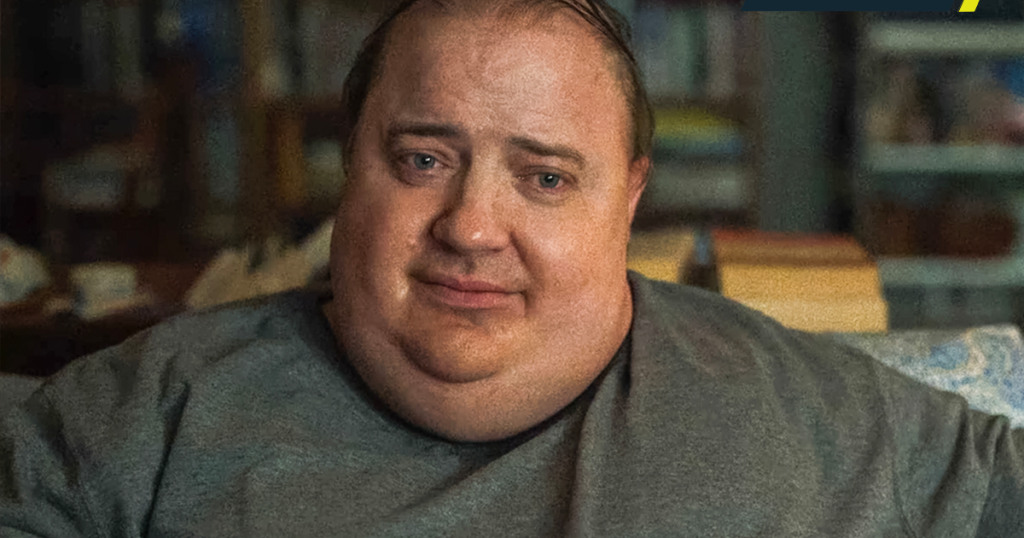
Darren Aronofsky (Requiem for a Dream, Black Swan) graces the big screen again with The Whale, his newest psychological drama based on Samuel D. Hunter’s stage play. This film follows a 600-pound English teacher trying to reconnect with his teenage daughter. The star of the film? An unlikely actor who you may not have seen on the big screen in a while. The muscle-bound action hero of the 1990s and 2000s, Brendan Fraser, plays an obese recluse in a flawed but heartfelt drama that captures a sober look at a broken family and a journey to fix it.
The film establishes a lot about the character’s routines. Our protagonist, Charlie, teaches a virtual English course with his camera turned off, and his private life surrounds junk food, masturbation, and visits from his nurse and best friend, Liz (Hong Chau). In many ways, The Whale examines a character with a physical appearance uncommon in our typical movie protagonist. While few will relate to his looks, many will relate to him as a character through his actions and how he feels about himself. The nuanced way his character is written allows him to be universal.
His tendency to keep his camera off while teaching his virtual class reflects his insecurities about his appearance and the fear of the judgment the world gives him. His obesity results from his poor mental health, showing how he copes with his stress by doubling down on all the unhealthy habits that bring him brief moments of joy. There is a tearful scene where we see why he wants to fix his relationship with his daughter: he wants to do one thing right with his life. The themes here are wide-reaching, and The Whale‘s strong sense of pathos brings this character down to earth.
Aronofsky offers a restrained nature to the film. Like his previous film, mother!, most of the film is confined to one house. This movie’s stageplay roots are evident, as we have a small group of characters with extended conversation scenes. The grounded quality of the film allows most of Aronofsky’s direction to be based on performance rather than flashy visuals or camera tricks. While his shot choices are excellent, this is one of his funnier, sadder, and simpler works, contrasting many of his more disturbing films.
The weakest link is Ellie (Sadie Sink), Charlie’s estranged daughter. Charlie and Ellie are supposed to be the film’s emotional core, but Ellie is a poorly written-character. She is a despicable, wretched excuse of a human being who delivers every sentence with a degree of annoyance and sarcasm. While Sink does an excellent job of bringing the character to life, there is little to her on the page. Instead, her character is the archetype of a bratty teenage girl cranked up to an 11. Even though her contempt for her father is justifiable, her actions are not. When the central emotional core surrounds a character almost entirely one-dimensional, it becomes challenging to care about Charlie’s goal.
But the strength of this movie is Fraser, who delivers the best performance of the year. He is grounded and emotional and put in the research to learn how a 600-pound person would walk. His 300 pounds of prosthetics look spectacular, enhancing Fraser’s gut-wrenching, award-worthy performance. Hunter’s screenplay allows for every character in the film to be more than meets the eye. While there are rough edges here and there, Aronofsky was able to craft an emotionally charged movie that spoke to me and likely will do the same for many others.
SCORE: 7/10
As ComingSoon’s review policy explains, a score of 7 equates to “Good.” A successful piece of entertainment that is worth checking out, but it may not appeal to everyone.

